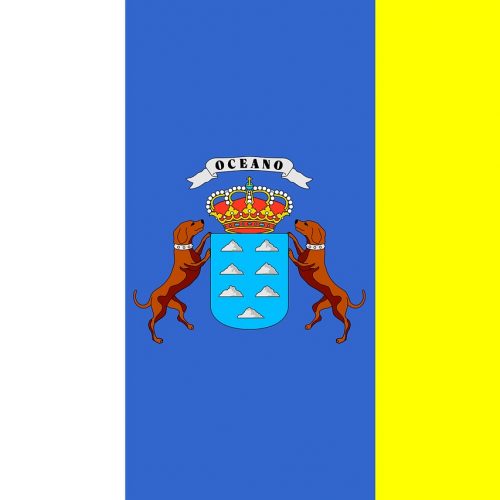
What is el Día de Canarias? (Canary Island’s Day)
Today we are taking a trip to learn a little bit more about an important celebration in seven islands that form part of Spain’s 17 Comunidades Autónomas—las islas Canarias.
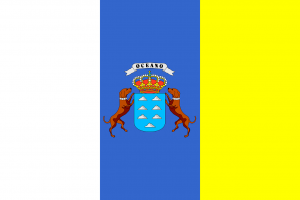 What is it?
What is it?
El Día de Canarias or the Day of the Canary Islands is a special celebration where all the people that come from this region of Spain—whether they are at home or abroad—commemorate their shared history. The President of the regional government says the following about the day*:
“La identidad de nuestro pueblo es algo que construimos cada día con nuestros hechos. Somos nuestra historia, nuestros símbolos, nuestra forma de expresarnos; somos lo que nos acontece como colectivo, lo que nuestra excepcional naturaleza nos ofrece y hace ser. Una identidad que fundamentamos a base de pretérito y de nuevos signos, y que conforman un pueblo, el canario, en el que por encima de las diferencias, siempre hay algo que nos une: construir un país. El 30 de mayo, Día de Canarias, es la ocasión para festejar por todo lo que nos distingue y poner de manifiesto la suma de voluntades, talentos y compromisos individuales que representan los más de dos millones de ciudadanos que habitamos estas Islas. Una suma, con la que cada día hacemos de Canarias un lugar mejor.”
“The identity of our people is something that we create every day with our actions. We are our history, our symbols, our way of expressing ourselves; we are what happens to us as a collective, what our exceptional nature offers us and allows us to be. It is an identity that is based on the preterit and new signs, and that makes up a people, the Canary people, that, above all their differences, has one thing that unites us: building a country. The 30th of May, Day of the Canary Islands, is the time to celebrate all that distinguishes us and to highlight the sum of wills, talent, and individual commitment that represents more than two million citizens who inhabit these Islands. It is a sum that allows us to make the Canary Islands a better place every day.”
Fernando Clavijo Batlle
President of the Government of the Canary Islands
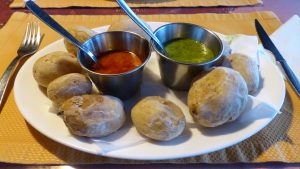 The history:
The history:
While the set of seven islands (Fuerteventura, Gran Canaria, La Gomera, El Hierro, Lanzarote, La Palma, and Tenerife) is closer to Africa than to Spain, they became part of Spanish territory during the Reconquista and joined the Kingdom of Castile in 1495. When you meet people from the Canary Islands, you will quickly see that their language—both grammatical and in pronunciation—and sense of community can differ from other parts of Spain, a country that is already quite diverse.
Therefore, it should be of no surprise that this region has been looking for its own identity for awhile. In fact, they first attempted to become an Autonomous Community during the Segunda Republica, or the Spanish political system that was in place before the Spanish Civil War and the rule of Franco. The search for autonomous recognition was put on hold until after Franco’s death in 1975. Finally, on August 10th, 1982 the Canary Islands became an Autonomous Community and, on May 30th, 1983, they held their first Parliamentary session. For this reason, the 30th of May is known as el Día de Canarias.
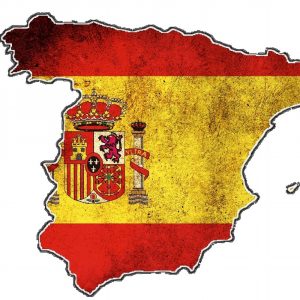 Main activities/how to join in:
Main activities/how to join in:
Each of the Islands has its own celebrations to honor the 30th of May, and the festivities will probably run from the 27th until the day itself. Around this time of year, you will find activities such as sports events, public parties, traditional food tastings, domestic animal shows, concerts, exhibitions, etc. The great thing is that no matter where you go, you will most likely find something going on. Here are some of the bigger events:
Tenerife: On this Island you will find exhibitions, music, art, and street theater in addition to the headquarters of the Canary Island Parliament.
Gran Canary: The Paseo Romero—a parade of folklore groups, cars, Canary cooking, etc.—is one of the main events on this Island.
Fuerteventura: On the 28th of May, the majoreros (the people of this Island) celebrate their Gran baile de las Taifas where they dress in traditional clothes and dance with family and friends.
Lanzarote: On this Island you will find gastronomy, traditions, and activities for the whole family, including the lucha canaria.
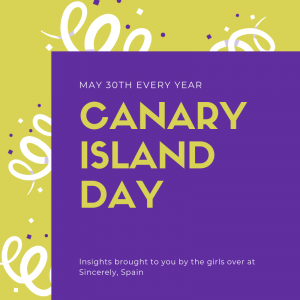 La Gomera: Here you will probably find the most traditional celebrations in the Canary Islands, such as local games that, if you are lucky, you might be able to join in.
La Gomera: Here you will probably find the most traditional celebrations in the Canary Islands, such as local games that, if you are lucky, you might be able to join in.
La Palma: Musicals along with traditional Canary Island food and games is what you will find on this Island.
El Hierro: A walk called “A Enchanted Legend” will show you the culture of the Island while sharing traditional music and theater.
* Source: http://www.gobiernodecanarias.org/presidencia/diadecanarias/2019/index.html
Additional Sources:
https://www.timeanddate.com/holidays/spain/canaries-day


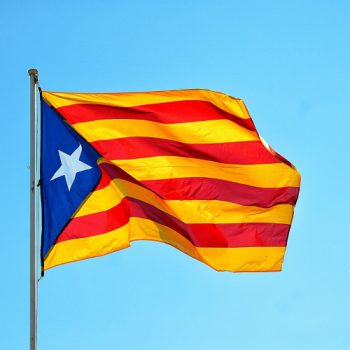
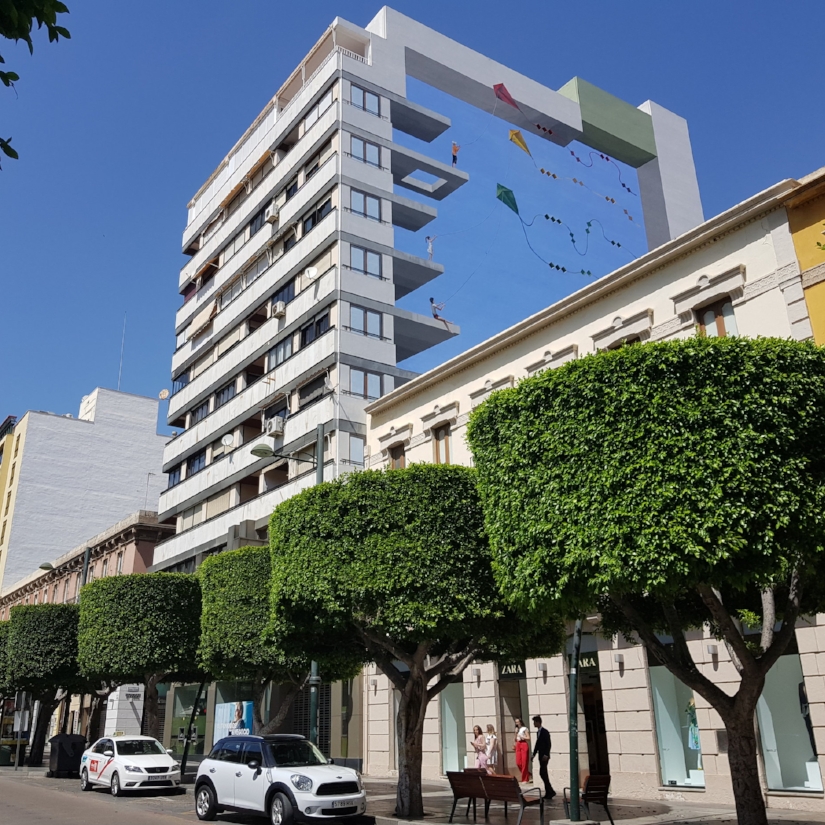
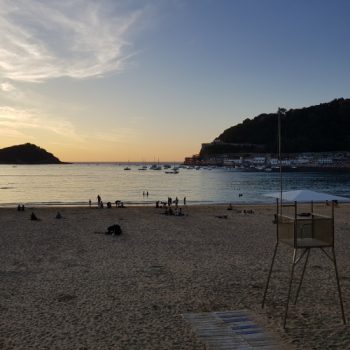
2 Comments
chak.tyulik@gmail.com
Canary Islands does sound like an absolutely beautiful place to visit in Spain. I love the sound of the brightly coloured buildings and the so many different parks you can visit
Sincerely, Spain
The Canary Islands are beautiful Chak! When you can, we highly recommend visiting 🙂